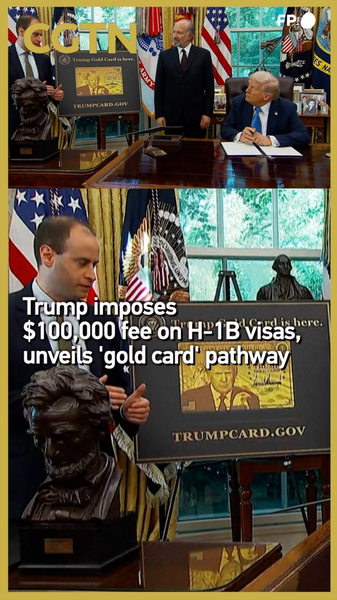U.S. President Donald Trump shook up the visa landscape this week by signing an executive order that slaps a $100,000 application fee on each H-1B visa. At the same time, he unveiled a new 'gold card' pathway, offering a fast-track green light for immigrants who pay $1 million or $2 million if a company sponsors them.
For decades, the H-1B program has been the go-to route for skilled professionals in tech, finance, and other specialized fields. But the hefty $100,000 fee marks a sharp turn. The White House says it will curb abuse and bring in more revenue while still keeping the doors open for top talent. Skeptics warn it could squeeze out startups and push global innovators to look elsewhere.
Meanwhile, the 'gold card' scheme is pitched as a VIP lane. Applicants who invest can jump to the front of the line. Critics say it favors deep-pocketed firms and high-net-worth individuals, potentially leaving smaller players in the dust.
Consider Maya, a data scientist eyeing a Silicon Valley startup. Under the old rules, she entered a lottery with hundreds of thousands of others. Now, she might face higher barriers unless she or a sponsor can meet the gold card price tag. For many, this could mean rethinking their U.S. career plans.
Reactions are mixed. Entrepreneurs in emerging markets worry about new barriers to entry, while some Fortune 500 firms welcome the certainty. Will this create a two-tier talent system, or will it accelerate innovation by letting the wealthiest secure key hires swiftly?
Next steps include a public comment period and potential legislative review. In the meantime, tech hubs, startups, and global job seekers are recalibrating their strategies as America's talent pipeline undergoes a major redesign.
Reference(s):
Trump imposes $100,000 fee on H-1B visas, unveils 'gold card' pathway
cgtn.com




